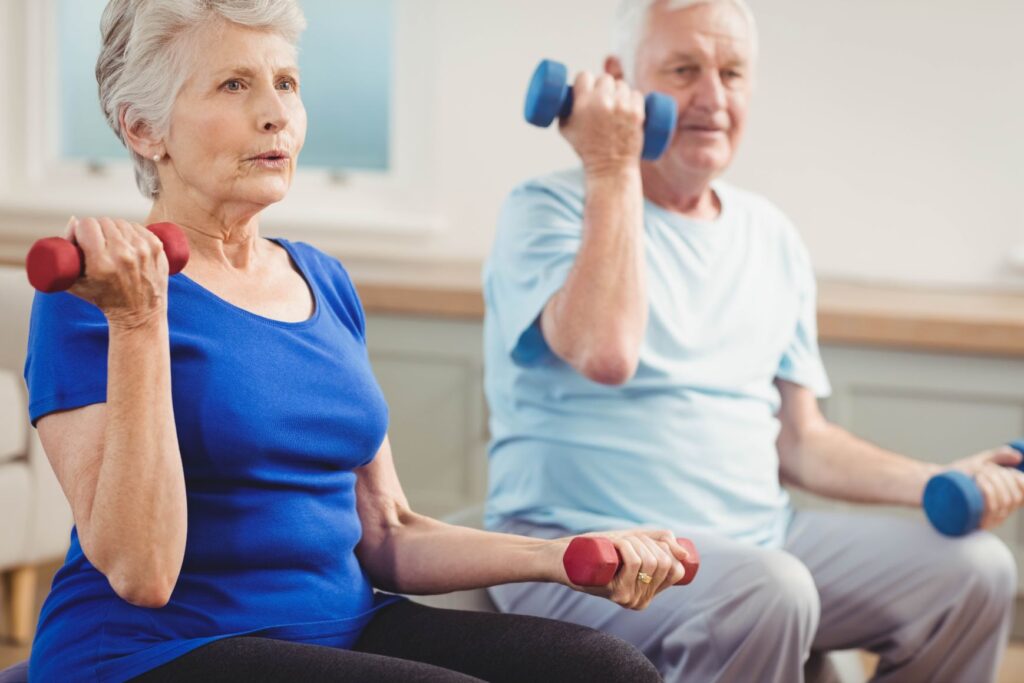
If you suffer from sleep apnea, you likely already know that it doesn’t just cause disruptions during the night, but the lack of sleep you experience can have negative effects during waking hours, too. If you are struggling to get a good night’s rest, research has shown that staying active during the day can help you fall -and stay- asleep, even with sleep apnea.
Here’s how (and why) daily exercise can help reduce your sleep apnea symptoms and help you get the rest you deserve.
Sleep Apnea and Your Weight
Though sleep apnea may be caused by many things, weight is often a contributor. In fact, if you have excess weight on your neck, this can directly affect your airway and your ability to breathe lying down.
Additionally, numerous studies have shown that weight loss can benefit sleep apnea patients. A study by the Journal of the American Medical Association revealed that by lowering your weight by just ten percent could reduce sleep apnea-hypopnea index by 26 percent!
Tips for Exercising with Sleep Apnea
Now that you know how important it is to get moving, you may be curious about the best kinds of exercise for sleep apnea. Cardio is considered the best type of movement for reducing sleep apnea symptoms.
To get started you don’t need to do anything too strenuous. Baby steps like taking a brisk walk once a day can build up to more complicated routines or strength training once you’ve increased up your endurance.
Facial Exercises
In addition to exercising your body, some evidence has shown that exercises for your face can help improve your air flow and help you rest. Recommended activities include:
- Play a brass or woodwind instrument: If you’ve stored away your old clarinet, dust it off and get back into a good rhythm!
- Singing: Whether you’re in a church choir, the shower, your car, or a karaoke spot, exercising your vocal cords can strengthen your throat muscles and may even reduce snoring.
- Tongue exercises: These can help train your tongue to stay in place and not fall back while you sleep. To do them, try the following:
- Place the tip of your tongue on the roof of your mouth for five seconds and repeat this 10 times.
- Stick your tongue out and try to touch your nose for 10 seconds. Repeat 10 times.
- Push your tongue out all the way to the right for 10 seconds and repeat 10 times before switching to the left side.
Watch Your Diet
Finally, it’s important to watch your diet, too. Eat plenty of lean protein, whole grains, healthy fats, and fresh fruits and vegetables. Avoid excessive sugar, carbohydrates, caffeine, and of course alcohol, especially right before bed.
Remember, maintaining a healthy lifestyle, including regular exercise and a nutritious diet is essential for keeping in good shape and reducing your sleep apnea symptoms. If you have any questions or concerns about making these lifestyle changes, speak to your doctor or dentist today.
About Dr. Marks
Dr. Donald Marks enjoys being able to help his patients improve their quality of life. Whether he’s working with your smile, or helping you get a better night’s sleep by treating your sleep apnea, he’s here to assist you in being healthy and comfortable with viable solutions that fit your lifestyle.
To learn more about sleep apnea treatment, please visit our website to schedule a consultation, or call us at 814-826-3767.




